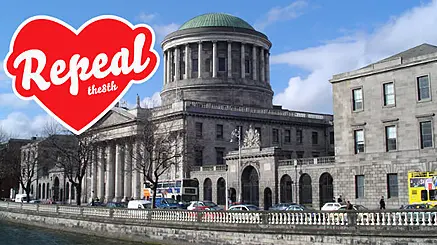A Number Of People Are Officially Challenging The Result Of The Referendum

Three weeks have passed since Ireland voted to repeal the Eighth Amendment and allow the government to legislate for reproductive health care. Two-thirds of the Irish public voted to repeal the amendment and political commentators called the win 'a landslide victory'.
According to The Irish Times, on June 26th the president of the High Court will hear three separate applications for permission to challenge the result of the referendum on the Eighth Amendment.
The result of the referendum can only be challenged if the applicant can provide prima facie (accepted as correct) evidence that the issues addressed impacted the May 25th result.
The petitions to challenge the result of the referendum are being made by Charles Byrne, a musician from Drogheda, Joanna Jordan, a homemaker from Dún Laoighaire and Ciarán Tracey, a retired public servant from Leitrim.
Byrne is concerned that a number of NUIG students were not properly registered to vote. Byrne claims he obtained information from Garda sources that an estimated 600 students queued daily at NUIG but were not properly registered. Byrne is seeking to access copies of the marked register of voters.
Additionally, Mr Byrne claims that the Referendum Commission's information campaign and booklet failed to convey the nature, breadth and legal effect of the proposal being voted upon.
Mr Tracey’s case centers on the Referendum Commission’s information campaign and booklet. He claims that the booklet included a “serious” omission by not referring to a decision of the European Court of Human Rights in the case of D v Ireland concerning the circumstances surrounding abortion in Ireland for fatal foetal abnormalities. Tracey claims that the case's omission sufficiently impacted the outcome of the referendum.
Ms Jordan claims that a large numbers of potential no voters were unable to vote due to “de-registering” and of an unexplained “swing” towards the Yes side. She also claims that "thousands" of Irish citizens were paid to return home and no one questioned them at the polling station about their time of residency abroad.
The applications are not expected to derail the timescale set about by the Taoiseach and Minister for Health.